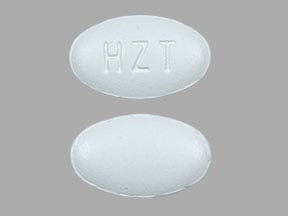
Ibuprofen-famotidine Coupons & Savings Card – Discount Prices from $66.15
Generic for: Duexis
My prescription
Edit
800-26.6MG, Ibuprofen-famotidine (90 Tablets)
Select pharmacy

CVS
$66.15
COUPON PRICE
Albertsons
$73.35
COUPON PRICE
Walgreens
$90.90
COUPON PRICE
Walmart
$201.91
COUPON PRICEIbuprofen-famotidine savings card
Show this card to your pharmacist
CVS
$66.15
BIN
ID
PCN
GRP
019876
LHD13D02AA
CHIPPO
LHX
Powered by
More prescriptions for rheumatoid arthritis
More prescriptions for rheumatoid arthritis
Price history for Duexis (brand) & Ibuprofen-famotidine (generic)
90 Tablets, 800-26.6MG
Average retail price for Duexis
Average retail price for Ibuprofen-famotidine
Average SaveHealth price for Ibuprofen-famotidine
Our price history data is based on aggregated prescription data collected from participating pharmacies in America. Our prescription data updates daily to reflect the latest price changes. If you notice a missing data point, it means there wasn't sufficient data available to generate a monetary value for that date.
We analyzed Ibuprofen-famotidine prices for (800-26.6MG, 90 Tablets) over the last 12 months. The average retail price was $999.00, while the average price using the SaveHealth discount card was $538.15. That's a savings of approximately 46.13% when using our Ibuprofen-famotidine coupon.
Compared to the generic version, Duexis had an average price of $2959.15 over the same time period. With the SaveHealth savings card, Ibuprofen-famotidine is 81.81% cheaper on average than Duexis.
*Retail prices are based on pharmacy claims data, and may not be accurate when we don't have enough claims.
Ibuprofen-famotidine dosage forms
Dosage Quantity Price from Per unit 800-26.6MG 90 Tablets $66.15 $0.73 800-26.6MG 21 Tablets $26.01 $1.24 800-26.6MG 30 Tablets $31.58 $1.05 800-26.6MG 60 Tablets $44.87 $0.75 800-26.6MG 270 Tablets $145.86 $0.54
| Dosage | Quantity | Price from | Per unit |
|---|---|---|---|
| 800-26.6MG | 90 Tablets | $66.15 | $0.73 |
| 800-26.6MG | 21 Tablets | $26.01 | $1.24 |
| 800-26.6MG | 30 Tablets | $31.58 | $1.05 |
| 800-26.6MG | 60 Tablets | $44.87 | $0.75 |
| 800-26.6MG | 270 Tablets | $145.86 | $0.54 |
